Part of the IaGenWeb Project
|
May 18, 1902 ~ June 12, 1984
WILLSON left Mason City in 1917 and began a distinguished career as a musician and composer. WILLSON attended Frank DAMROSCH'S Institute of Musical Art, later known as the Juilliard School, in New York City. On August 29, 1920, high school sweethearts Meredith WILLSON and Elizabeth "Peggy" WILSON were married. WILLSON was a flute and piccolo player for John Philip SOUSA'S band from 1921 to 1923. He was a member of the New York Philharmonic Orchestra from 1924 to 1929, under the direction of Arturo TOSCANINI. Meredith and Peggy moved to San Francisco, California where he was the concert director for KFRC, then he was a musical director for Hollywood's NBC radio network. WILLSON'S wrote the music for Charlie CHAPLIN'S The Great Dictator (1940) and William WYLER'S The Little Foxes (1941). Both films earned WILLISON Academy Award nominations. During World War II, WILLSON worked for the United States Armed Forces Radio Service, teaming him with George BURNS, Gracie ALLEN, and Bill GOODWIN. WILLSON was the bandleader and a regular character on The BURNS and ALLEN radio program. His character was a male version of Gracie ALLEN'S character, dizzy but shy and always seeking advice on women. After World War II, WILLSON returned to network radio. He created a choral group called The Talking People, a group that spoke in unison while delivering radio commercials. WILLSON became the musical director for a prestigious comedy-variety program, The Big Show which was hosted by actress Tallulah BANKHEAD. WILLSON became part of one of the show's running gags by beginning a reply to Miss BANKHEAD'S comment or questions with, "Well, sir, Miss BANKHEAD. . ." WILLSON wrote the song May The Good Lord Bless and Keep You for the show. Miss BANKHEAD closed each show by speaking the lyrics over the music. During the early 1950's, WILLSON was a regular panelist for a few years on the GOODSON-TODMAN game show, The Name's the Same WILLSON served as the musical director in 1950 for The California Story, the state's Hollywood Bowl centennial production. Here he met Franklin LACEY, a writer who proved to play a big part in the development of a story line for a musical WILLSON had been working on ~ The Music Man. The California Story was followed by two more state centennial productions with stage director Vladimir ROSING ~ The Oregon Story in 1959 and The Kansas Story in 1961.
It took WILLSON approximately eight years and thirty-some revisions before The Music Man premiered on Broadway December 19, 1957 at the Majestic Theatre. WILLSON wrote more than forty songs for the production. WILLSON called it "an Iowan's attempt to pay tribute to his home state." The cast recording of The Music Man won the first Grammy Award ever issued for Best Original Cast Album, Broadway or television. The Broadway production was a hit, running for 1,375 performances and winning 5 Tony Awards, including Best Musical, beating out West Side Story for that honor. It won a Tony for Best Actor in a Musical (Robert PRESTON), Best Featured Actress in a Musical (Barbara COOK), Best Featured Actor in a Musical (David BURNS), and, Best Conductor and Musical Director (Herbert GREENE). It also won the New York Drama Critic's Award for Best Musical. The Music Man was adapted twice for film; once in 1962 starring Robert PRESTON as Professor Harold Hill and Shirley JONES as librarian Marian Parro; and, in 2003 starring Matthew BRODERICK as Professor Hill and Kristin CHENOWETH as Marian the librarian. Robert PRESTON proclaimed that he won the role of Professor HILL despite his limited singing range because he was able to sing the song Trouble. With his acting background, it was the easiest song for PRESTON to sing when the producers thought it would be the most difficult of all of the production's songs to sing. The film premiered at the Palace Theater in Mason City in grand style with more than 100 marching bands from throughout Iowa and across the nation participating in a four-hour parade with WILLSON personally serving as band leader. The 1962 film was selected in 2005 by the Library of Congress for preservation in the U.S. National Film registry, stating that it was "culturally, historically, or aesthetically significant." When it was released it was one of the biggest hits of the year, and was critically highly acclaimed. Nominated for six Academy Awards [Best Picture, Best Costume, Best Art Direction, Best Film Editing, and Best Sound], the film won for Best Musical Score.
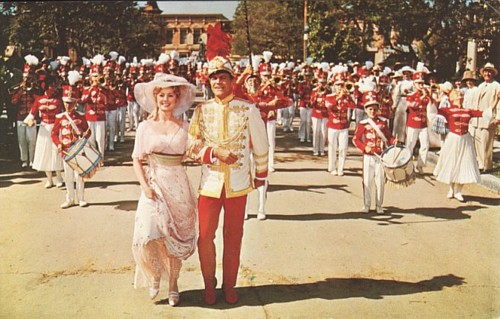 The 2003 production was nominated for 5 Primetime Emmys (Outstanding Art Direction for a Miniseries, Movie or a Special; Outstanding Choreography; Outstanding Costumes for a Miniseries, Movie or a Special; Outstanding Musical Diretion; and Outstanding Single Camera Sound Mixing for a Miniseries or a Movie); won the Motion Picture Sound Editors Award for Best Sound Editing in Television, Long Form, Music; and nominated for 2004's Young Artist Award for Cameron MONAGHAN'S performance. The production is frequently performed by both professional and amateur theater companies. The song Till There Was You was recorded by The Beatles on the 1963 LP With The Beatles, or Meet The Beatles! in the United States. His widow Rosemary later told The New York Times that WILLSON'S estate made more money from the royalties of The Beatle's recording than it ever did from the play. Another one of WILLSON'S songs, It's Beginning to Look Like Christmas, is a seasonal favorite. He also wrote the University of Iowa's Fight Song. WILLSON'S second musical, The Unsinkable Molly Brown ran on Broadway from 1960 to 1962 for 532 performances. It was made into a motion picture in 1964, starring Debbie Reynolds. WILLSON'S third musical was an adaptation of Miracle on 34th Street which was titled Here's Love (1963). WILLSON'S fourth musical, which was his last and least successful, was 1491 telling the story of COLUMBUS' attempts to finance his voyage across the Atlantic Ocean. It was never produced on Broadway. WILLSON wrote three autobiographies: And There I Stood With My Piccolo in 1948; Eggs I Have Laid in 1955, and But He Doesn't Know the Territory in 1959. After WILLSON and Elizabeth divorced, he married on March 13, 1949 Ralina "Rini" ZAVORA who died December 6, 1966. WILLSON married the third time in February of 1968 to Rosemary Patricia SULLIVAN, who survived him. The WILLSONS lived in the Mandeville Canyon section of Brentwood, California. He was fondly remembered as a warm and gregarious host who enjoyed playing the piano and singing at parties. He often gave out autographed copies of his record album Meredith WILLSON Sings Song from The Music Man. WILLSON and Rosemary appeared in the audience of The Lawrence Welk Show in 1982. WILLSON was an active member and a deacon of the Westwood Hills Congregational Church of Los Angeles from around 1949 until the end of his life. He donated a stained glass window called "The Music Man Window" which was located above his pew. The window represents various musical instruments. WILLSON composed hymns for the church and drove a Rolls Royce to services. The pastor, also from Northeastern Iowa, was one of WILLSON'S close friends. Meredith WILLSON died of heart failure at the age of 82 years on June 12, 1984, Santa Monica, California. He was interred at Elmwood Saint Joseph Cemetery at Mason City, Iowa. WILLSON'S boyhood home, a part of The Music Man Square in Mason City, opened during the spring of 2002. His widow Rosemary was a very generous donor to the square. A native of Michigan, Rosemary was born on March 10, 1921, and died January 25, 2010, in Los Angeles.
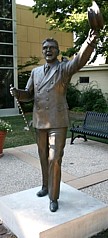
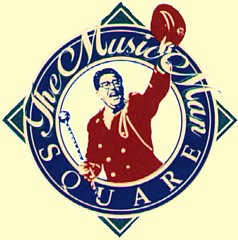
The Juilliard School, WILLSON'S alma mater, dedicated its first and only residence hall to WILLSON in 2005. He was also awarded a star on Hollywood's Walk of Fame at 6411 Hollywood Blvd. Mason City hosts an annual event, The North Iowa Band Festival, which celebrates music with a special emphasis on Marching Bands. WILLSON returned home several times during the 1950's to enjoy the event, and lead the "Big Parade." The 1962 premiere of the motion picture The Music Man was held in Mason City, and the Festival reflected the event with special appearances which included Shirley JONES and Robert PRESTON. W. Earl HALL, editor of the Mason City Globe-Gazette, a state-wide radio personality and WILLSON'S friend of many decades, was the Master of Ceremonies.
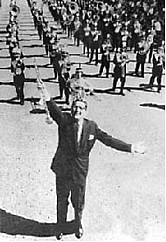
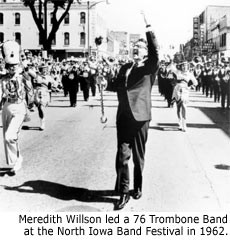
With a hundred and ten cornets right behind. . . Thundering, thundering all along the way. . .
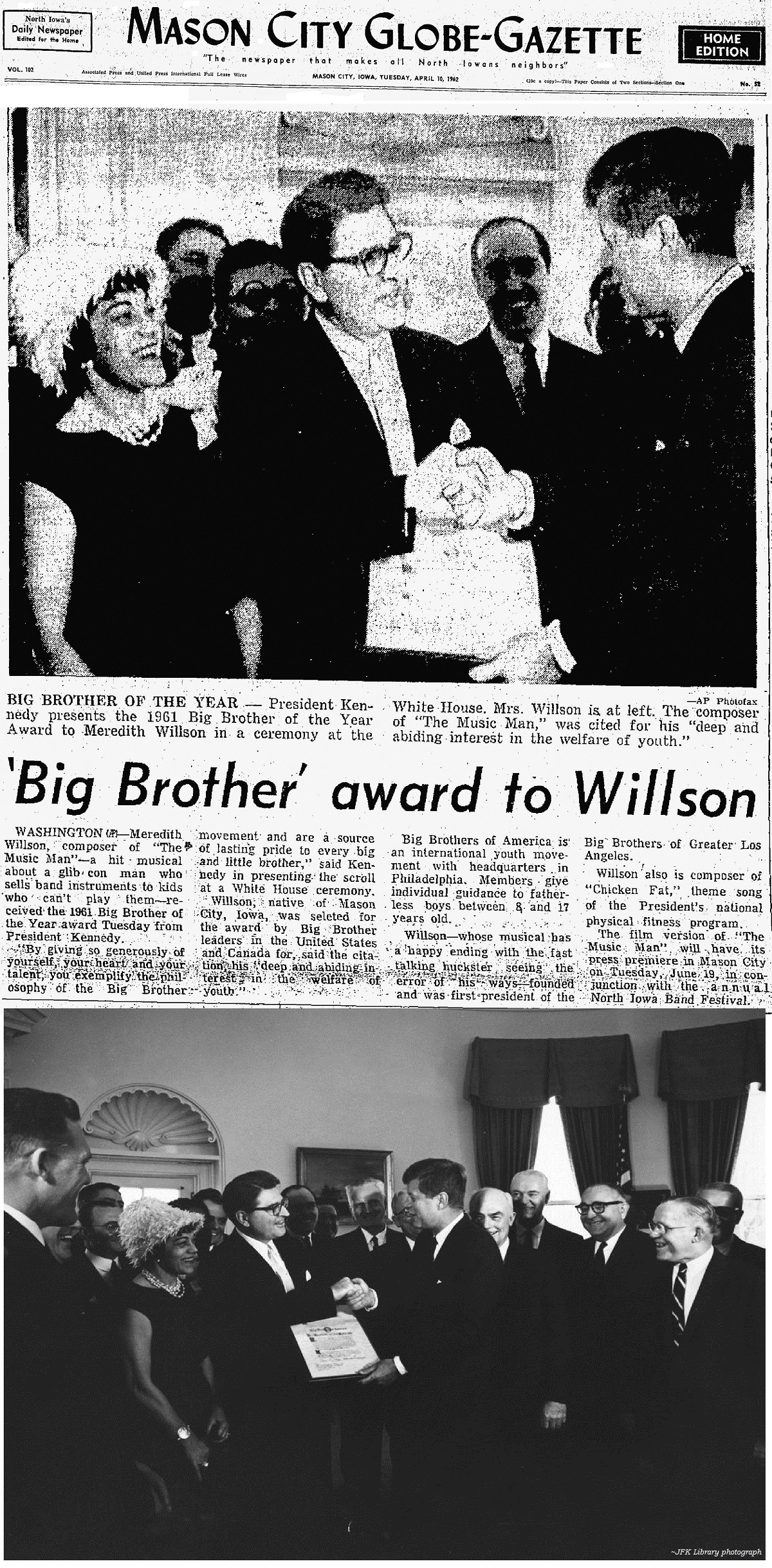
President Ronald REAGAN presented Meredith WILLSON, posthumously, with the Presidential Medal of Freedom on June 23, 1987.

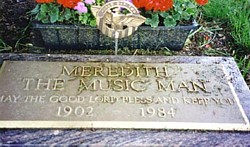
SOURCES: Compilation & Submission by Sharon R. Becker, January of 2011 |
© Copyright 1996-2025
Cerro Gordo Co. IAGenWeb Project
All rights Reserved.



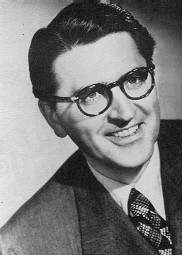 Robert Meredith WILLSON was born in Mason City, Iowa, on May 18, 1902, the son of John David and Rosalie (REINIGER)
WILLSON. He was the youngest of a family of three children; sister Lucille "Dixie" who was twelve years older, and John
Cedrick, two years older. Rosalie, a piano teacher, gathered the family around the piano every evening to
sing favorite songs. By the time he was in high school, WILLSON was playing the flute as a semi-professional.
Robert Meredith WILLSON was born in Mason City, Iowa, on May 18, 1902, the son of John David and Rosalie (REINIGER)
WILLSON. He was the youngest of a family of three children; sister Lucille "Dixie" who was twelve years older, and John
Cedrick, two years older. Rosalie, a piano teacher, gathered the family around the piano every evening to
sing favorite songs. By the time he was in high school, WILLSON was playing the flute as a semi-professional.
 Inspired by his boyhood home of Mason City, WILLSON began developing his 1949 memoir, And There I Stood With My
Piccolo. After several unsuccessful attempts in seeing the musical brought to production, WILLSON invited LACEY to help
with editing and to simplify the libretto. The character Marion PAROO was inspired by Marian SEELEY of Provo, Utah during
World War II when Marian was a medical records librarian and WILLSON was with the U.S. Armed Forces Radio Service.
Inspired by his boyhood home of Mason City, WILLSON began developing his 1949 memoir, And There I Stood With My
Piccolo. After several unsuccessful attempts in seeing the musical brought to production, WILLSON invited LACEY to help
with editing and to simplify the libretto. The character Marion PAROO was inspired by Marian SEELEY of Provo, Utah during
World War II when Marian was a medical records librarian and WILLSON was with the U.S. Armed Forces Radio Service.